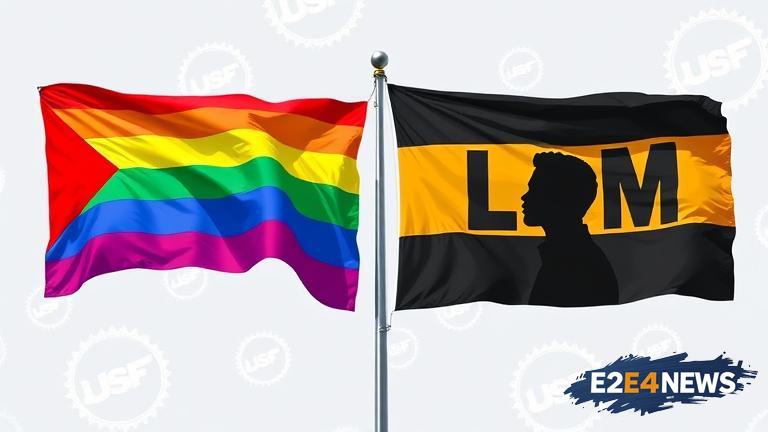The University of South Florida (USF) has recently been at the center of a heated debate regarding the removal of Pride and Black Lives Matter (BLM) flags from its campus. The decision to take down these flags has been met with widespread criticism, with many arguing that it undermines the university’s commitment to diversity and inclusion. The Pride flag, a symbol of the LGBTQ+ community, and the BLM flag, a representation of the fight against systemic racism, are important emblems of identity and solidarity. By removing these flags, the university has inadvertently sent a message that it does not value or support these communities. This decision has sparked outrage among students, faculty, and staff, who are calling for the reinstatement of the flags. The controversy has also drawn attention to the broader issue of diversity and inclusion on campus, with many arguing that the university needs to do more to create a welcoming and inclusive environment for all students. The removal of the flags has been seen as a step backwards, undermining the progress that has been made in recent years to promote diversity and inclusion. The university’s administration has been criticized for its handling of the situation, with many arguing that it has failed to listen to the concerns of students and faculty. The debate has also highlighted the importance of free speech and the right to express one’s identity and beliefs. The removal of the flags has been seen as a form of censorship, with many arguing that it stifles the ability of students to express themselves and their identities. The controversy has sparked a wider conversation about the role of universities in promoting diversity and inclusion, and the importance of creating a welcoming and inclusive environment for all students. The university’s commitment to diversity and inclusion is not just a moral imperative, but also a necessary step to ensure that all students feel valued and supported. The removal of the flags has also raised questions about the university’s policies and procedures, with many arguing that they need to be revised to ensure that they are inclusive and respectful of all students. The controversy has also highlighted the importance of student activism and the role that students can play in promoting diversity and inclusion on campus. The debate has sparked a sense of urgency and activism among students, with many calling for the reinstatement of the flags and for the university to do more to promote diversity and inclusion. The university’s administration has been called upon to listen to the concerns of students and faculty, and to take concrete steps to address the issues that have been raised. The controversy has also drawn attention to the broader social and political context, with many arguing that the removal of the flags is part of a larger trend of intolerance and discrimination. The debate has sparked a wider conversation about the importance of promoting diversity and inclusion, and the need for universities to take a stand against intolerance and discrimination. The university’s commitment to diversity and inclusion is not just a local issue, but also a national and international one, with many arguing that it has implications for the broader society. The controversy has also highlighted the importance of education and awareness, with many arguing that it is necessary to educate students and faculty about the importance of diversity and inclusion. The debate has sparked a sense of reflection and introspection among students and faculty, with many arguing that it is necessary to examine one’s own biases and assumptions. The controversy has also raised questions about the role of universities in promoting social justice, with many arguing that they have a responsibility to promote equality and justice. The university’s commitment to diversity and inclusion is not just a moral imperative, but also a necessary step to ensure that all students feel valued and supported. The removal of the flags has also sparked a sense of solidarity and unity among students and faculty, with many arguing that it is necessary to stand together in support of diversity and inclusion. The controversy has also highlighted the importance of leadership and the role that university administrators can play in promoting diversity and inclusion. The university’s administration has been called upon to take a strong stance in support of diversity and inclusion, and to provide leadership and guidance to students and faculty. The debate has sparked a wider conversation about the importance of promoting diversity and inclusion, and the need for universities to take a stand against intolerance and discrimination.





